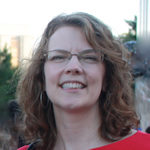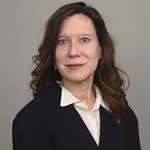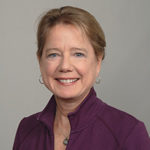A website is one of the most important tools a college can use for marketing to prospective students (Kelly, 2019). The College of Education (COE) at the University of Hawaii at Manoa is currently redesigning its website to better serve its complex needs. The COE consists of eight academic departments, two research units, 196 faculty, over 1800 students, 58 program and track options, and is involved in various projects. Providing accurate, thorough, and up-to-date information to the COE’s varied audiences had become too complex for its single website. Through a needs analysis, the COE’s web design team identified design requirements that allowed COE units to communicate directly with their stakeholders, align with COE branding, and benefit from the COE’s technical support. In response, the team utilized a multi-site approach of interconnected and templatized subsites that support consistency, yet provide options for customization.
Expected to be completed in Summer 2020, the site is being built in phases that allow for making revisions based on feedback. In Spring 2020, the web design team will be conducting a usability study to determine whether website visitors are able to accomplish the common goals of prospective students. Methods will include participant observation and interviews.
The purpose of this presentation will be to share highlights from the process, the structure of the new site, the results of the usability study, and future site plans. While the results and lessons learned will stem from one College’s experience, it is expected that the implications will be applicable to other institutions.

 Faye Furutomo is a project manager and designer, specializing in web development and instructional design projects. She has been with the UH Mānoa College of Education since 2008, serving as web designer and program manager for Distance Course Design & Consulting (DCDC), an award winning design and development team. She is also currently pursuing her PhD in Learning Design & Technology at UH Manoa. In addition, she is a certified Project Management Professional (PMP) and earned her MBA from the Shidler College of Business, BA from Wheaton College in Illinois, BFA from the University of Hawai‘i at Mānoa, a Certificate of Online Learning and Teaching (COLT) from the Learning Design & Technology department. Faye is interested in the fields of project management, leadership, strategic planning, design and is passionate about improving higher education for Hawaii’s current and future generations.
Faye Furutomo is a project manager and designer, specializing in web development and instructional design projects. She has been with the UH Mānoa College of Education since 2008, serving as web designer and program manager for Distance Course Design & Consulting (DCDC), an award winning design and development team. She is also currently pursuing her PhD in Learning Design & Technology at UH Manoa. In addition, she is a certified Project Management Professional (PMP) and earned her MBA from the Shidler College of Business, BA from Wheaton College in Illinois, BFA from the University of Hawai‘i at Mānoa, a Certificate of Online Learning and Teaching (COLT) from the Learning Design & Technology department. Faye is interested in the fields of project management, leadership, strategic planning, design and is passionate about improving higher education for Hawaii’s current and future generations. Michelle Carino is a graphic designer with experience in branding, marketing, print, and web. She worked with non-profit organizations, with ad and design agencies, and in-house. Since 2011, she’s served as an art director/user interface designer at the College of Education. She graduated from the University of Hawai’i at Mānoa with a Bachelor in Fine Art and is currently working toward a master’s degree in library and information science.
Michelle Carino is a graphic designer with experience in branding, marketing, print, and web. She worked with non-profit organizations, with ad and design agencies, and in-house. Since 2011, she’s served as an art director/user interface designer at the College of Education. She graduated from the University of Hawai’i at Mānoa with a Bachelor in Fine Art and is currently working toward a master’s degree in library and information science. Dr. Ariana Eichelberger is an Associate Specialist and Instructional Designer in the College of Education. Eichelberger manages the Instructional Support Group of the College and coordinates the College’s faculty professional development program. As a faculty member of the Department of Learning Design and Technology, Eichelberger teaches graduate and undergraduate courses in instructional design and technology integration. She is also an instructional designer with the COE’s Distance Course Design and Consulting group (DCDC).
Dr. Ariana Eichelberger is an Associate Specialist and Instructional Designer in the College of Education. Eichelberger manages the Instructional Support Group of the College and coordinates the College’s faculty professional development program. As a faculty member of the Department of Learning Design and Technology, Eichelberger teaches graduate and undergraduate courses in instructional design and technology integration. She is also an instructional designer with the COE’s Distance Course Design and Consulting group (DCDC). Rebekah Davis is a PhD student in the Learning Design and Technology program at NC State. She is the Digital Learning Graduate Assistant in METRC, the College of Education’s media resource center. Along with conducting in-house and conference workshops on technology integration topics, she teaches the Introduction to Instructional Technology class for undergraduates.
Rebekah Davis is a PhD student in the Learning Design and Technology program at NC State. She is the Digital Learning Graduate Assistant in METRC, the College of Education’s media resource center. Along with conducting in-house and conference workshops on technology integration topics, she teaches the Introduction to Instructional Technology class for undergraduates.
 Laura B. Fogle has over twenty years of experience in educational technology. She has taught in preschool, elementary and middle school. She has developed online graduate courses, and presented at regional and national conferences on the topic of instructional technology. She currently serves the College of Education at NC State University as the Assistant Director of Media and Education Technology Resource Center (METRC), where she enjoys working with students and educators to enhance teaching and learning with technology. She holds a BS in Electrical Engineering and a Masters in Instructional Technology. Her interests include makerspaces, virtual reality, and digital equity.
Laura B. Fogle has over twenty years of experience in educational technology. She has taught in preschool, elementary and middle school. She has developed online graduate courses, and presented at regional and national conferences on the topic of instructional technology. She currently serves the College of Education at NC State University as the Assistant Director of Media and Education Technology Resource Center (METRC), where she enjoys working with students and educators to enhance teaching and learning with technology. She holds a BS in Electrical Engineering and a Masters in Instructional Technology. Her interests include makerspaces, virtual reality, and digital equity. Dr. Carolyn Stevenson is currently a full-time faculty member for Purdue University Global. She completed her Ed.D. from Roosevelt University, M.B.A. from Kaplan University, M.A. in Communications from Governor’s State University and B.A. in English from Northern Illinois University. She has been cited for her expertise in online learning, qualitative research, open educational resources, and prior learning. She is also a regular reviewer for conference papers and textbooks and has served on various offices and committees for the American Education Research Association. Carolyn has over 20 years teaching and administrative experience in higher education at both the undergraduate and graduate levels and has taught Speech, Fine Arts and Humanities for City Colleges of Chicago. She is currently working on editing a text entitled Enhancing Higher Education Accessibility through Open Education and Prior Learning, to be published by IGI Global in 2020.
Dr. Carolyn Stevenson is currently a full-time faculty member for Purdue University Global. She completed her Ed.D. from Roosevelt University, M.B.A. from Kaplan University, M.A. in Communications from Governor’s State University and B.A. in English from Northern Illinois University. She has been cited for her expertise in online learning, qualitative research, open educational resources, and prior learning. She is also a regular reviewer for conference papers and textbooks and has served on various offices and committees for the American Education Research Association. Carolyn has over 20 years teaching and administrative experience in higher education at both the undergraduate and graduate levels and has taught Speech, Fine Arts and Humanities for City Colleges of Chicago. She is currently working on editing a text entitled Enhancing Higher Education Accessibility through Open Education and Prior Learning, to be published by IGI Global in 2020. Dr. Marlene N. Blake has worked in higher education for 16 years in various roles from student services, academic affairs/operations, and support resources. Her current career in faculty training and development focuses on optimizing the teaching and learning process as well as ensuring exceptional educational standards. She enjoys conducting researching on meaningful motivation, connectedness, leadership and providing professional development opportunities that are uniquely innovative. Dr. Blake has taught student success, critical thinking, interpersonal communication, and doctoral courses online for 12 years. She is passionate about teaching, training, mentoring, and empowering faculty/students. Dr. Blake has a Bachelor’s in Psychology with a minor in Family Studies and Child Development, a Master’s in Education focusing on Adult Distance Education as well as Curriculum and Instruction, and a Ph.D. in Higher Education Administration. Beyond teaching and supporting students/faculty, she enjoys traveling with her husband and daughter!
Dr. Marlene N. Blake has worked in higher education for 16 years in various roles from student services, academic affairs/operations, and support resources. Her current career in faculty training and development focuses on optimizing the teaching and learning process as well as ensuring exceptional educational standards. She enjoys conducting researching on meaningful motivation, connectedness, leadership and providing professional development opportunities that are uniquely innovative. Dr. Blake has taught student success, critical thinking, interpersonal communication, and doctoral courses online for 12 years. She is passionate about teaching, training, mentoring, and empowering faculty/students. Dr. Blake has a Bachelor’s in Psychology with a minor in Family Studies and Child Development, a Master’s in Education focusing on Adult Distance Education as well as Curriculum and Instruction, and a Ph.D. in Higher Education Administration. Beyond teaching and supporting students/faculty, she enjoys traveling with her husband and daughter! Dr. Meng-Fen Grace Lin is an Associate Professor in the Department of Learning Design and Technology (LTEC) in the College of Education at the University of Hawaii at Manoa. She teaches graduate-level courses on mobile learning, design thinking, and research and evaluation of LTEC. Her recent research interests center on applying design thinking, creativity, and problem-solving in real-world education contexts.
Dr. Meng-Fen Grace Lin is an Associate Professor in the Department of Learning Design and Technology (LTEC) in the College of Education at the University of Hawaii at Manoa. She teaches graduate-level courses on mobile learning, design thinking, and research and evaluation of LTEC. Her recent research interests center on applying design thinking, creativity, and problem-solving in real-world education contexts. Kwi Park-Kim is Associate Professor of Business & Information Systems Department at
Kwi Park-Kim is Associate Professor of Business & Information Systems Department at Ilene Ringler is a full-time faculty member. She serves as the course lead for the business perspectives course (part of the core MBA program) and the MBA capstone course. Ringler started her academic career while working for Bose Corporation and taught MBA courses at Babson University. She brings 30 years of work experience in the business field and is the principal of Ilene Ringler Associates, LLC, which provides services on values-based strategic growth and development. She has served on the Board of Directors for the Phoenix Chapter of National Association of Women Business Owners Mentoring Program, the Arizona Entrepreneurs, and the Women’s Enterprise Foundation. In addition to advising new and small business owners, Ringler has served as an advisor to the APS Academy for the Advancement of Small, Minority, and Women Owned Enterprises program. Research Interests: Ways to increase student satisfaction with discussion boards in the classroom and to promote effective collaborative work.
Ilene Ringler is a full-time faculty member. She serves as the course lead for the business perspectives course (part of the core MBA program) and the MBA capstone course. Ringler started her academic career while working for Bose Corporation and taught MBA courses at Babson University. She brings 30 years of work experience in the business field and is the principal of Ilene Ringler Associates, LLC, which provides services on values-based strategic growth and development. She has served on the Board of Directors for the Phoenix Chapter of National Association of Women Business Owners Mentoring Program, the Arizona Entrepreneurs, and the Women’s Enterprise Foundation. In addition to advising new and small business owners, Ringler has served as an advisor to the APS Academy for the Advancement of Small, Minority, and Women Owned Enterprises program. Research Interests: Ways to increase student satisfaction with discussion boards in the classroom and to promote effective collaborative work. Carol Schubert is a full time professor at Purdue University Global and course lead for multiple courses within the MBA prgoram.
Carol Schubert is a full time professor at Purdue University Global and course lead for multiple courses within the MBA prgoram.
 Dr. Glassman is an Assistant Professor of Management and IT Strategy in the College of Business at Embry-Riddle Aeronautical University – Worldwide. Dr. Glassman is the Chair of the Management & Technology Department and previously served as the Program Chair of the Master of Science in Management (MSM) Program. Prior to that he served as the Director of Academics for two ERAU-WW campuses. Dr. Glassman began his career at ERAU over a decade ago as an adjunct while still working in the aviation industry.
Dr. Glassman is an Assistant Professor of Management and IT Strategy in the College of Business at Embry-Riddle Aeronautical University – Worldwide. Dr. Glassman is the Chair of the Management & Technology Department and previously served as the Program Chair of the Master of Science in Management (MSM) Program. Prior to that he served as the Director of Academics for two ERAU-WW campuses. Dr. Glassman began his career at ERAU over a decade ago as an adjunct while still working in the aviation industry.